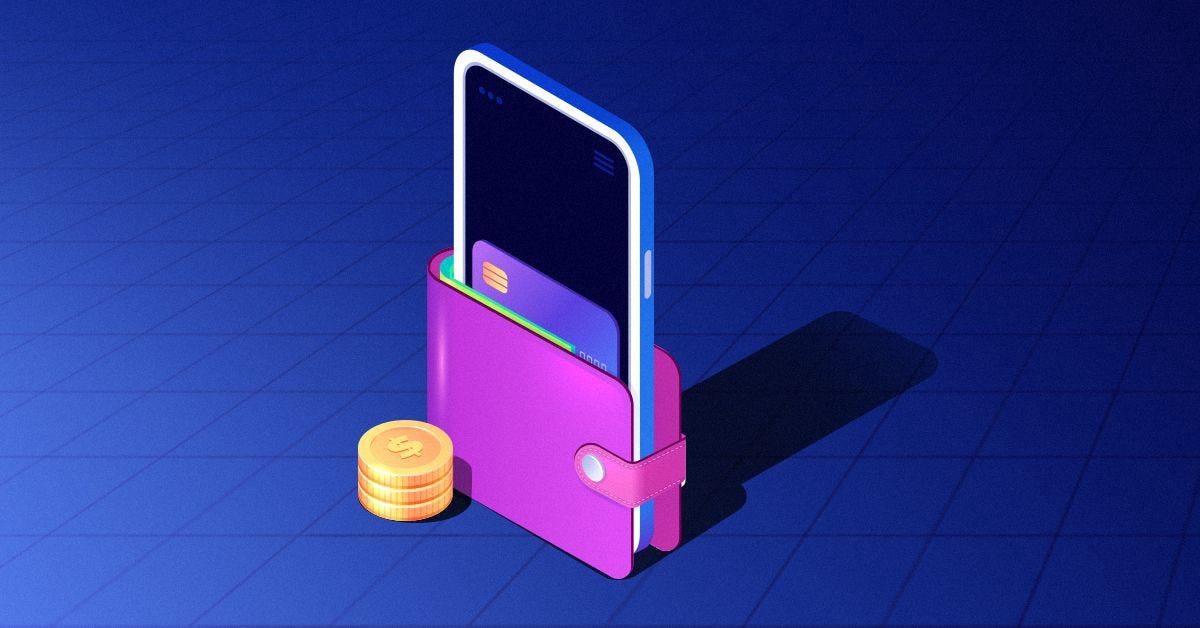Welcome to Yaka Stuff, our weekly newsletter that covers news, industry perspectives, and updates from the Hard Yaka ecosystem. Check out last week’s report here.
This week:
Everyone needs a wallet
This week in stablecoins
Ecosystem updates
Stuff happens
1. Everyone needs a wallet
Protocol has a good overview:
Everyone wants to be a wallet. The wallet metaphor is powerful: a store of both identity and value. Who in tech wouldn’t want a lock on that?
…
Crypto has complicated things further. Sending or receiving crypto requires a wallet, though a crypto wallet is really just an address on a distributed ledger. Yet the crypto and NFT crazes gave the wallet metaphor even more power.
And while Apple Pay and Google Pay have made progress on the payments front in recent years, this is still a messy space.
How many wallets are too many? In the real world, we typically have just one. And that’s where the metaphor really fails.
Randi Zuckerberg, who has found a new phase in her career promoting crypto, says the problem is, well, short-sighted corporate greed. A surfeit of wallets is “not contributing to development” of Web3, she said at a talk at the Global Supertrends conference Wednesday. “You leave the house with one wallet,” she pointed out. “And you need to see that same behavior online also.”
That one wallet needs to be convenient. It also needs to be portable and interoperable. And just like your actual wallet, you need to own and control it.
If we’re really going to work this wallet metaphor, maybe the best wallet is the one you don’t have to think about. Apple and Google might have an edge here, since their built-in wallets increasingly blend into the everyday functions of iPhones and Androids. But they’re still much harder to use than the physical tool they aim to replace. When I got my new physical wallet, I just moved my cards over, which was a lot less painful than restoring my multiple digital wallets when my phone died.
And that’s the contradiction at the heart of this trend: A truly interoperable wallet is maximally useful for consumers, but a valueless commodity to the company providing it. If a tech company isn’t trying to pick it, is it really a wallet?
Also timely:
The Wallet app, once known as Passbook, is an app that comes installed by default on the iPhone to let users manage tickets, transit cards, keys, and most importantly, credit and debit cards added through Apple Pay. Right now, users can’t uninstall the Wallet app from their iPhone if they want to, but this is about to change.
Code seen by 9to5Mac makes it clear that the Wallet app has become “deletable” with iOS 16.1. Unsurprisingly, some features like Apple Pay won’t work without the Wallet app. In this case, users will see a message telling them to “Download the Wallet app from the App Store.”
…
This move comes at a time when Apple is facing antitrust complaints against Apple Pay. Earlier this year, the European Union shared a Statement of Objections in which it criticizes Apple for restricting the NFC technology in the iPhone to its own payments platform. In July, law firm Hagens Berman also filed a lawsuit against Apple for forcing banks to adopt Apple Pay in order to reach iPhone and Apple Watch users.
Elsewhere in wallets and identity:
iOS 16.1 to Let Users Delete Wallet App Amid Antitrust Concerns Over Apple Pay
Via /vs—ID.me Lawsuit Claims Company Violates Data Storage Requirements
BalkanID Brings AI to Identity Governance and Administration to Take on SailPoint
Sumsub Promotes Expansion of Digital ID Services with US Office, Popular YouTube Account
Google Wallet Enters South Africa to Tap Digital Payments Growth
Oracle’s ‘Surveillance Machine’ Targeted in US Privacy Class Action
Twitter Confirms it is Testing a Phone Number Verification Badge
2. This week in stablecoins
Tether Says it's Not Freezing Tornado Cash Addresses Until Government Tells It To
Australia Unveils Plans for Crypto Regulations Unlike 'Anywhere Else in the World'
3. Ecosystem updates
You can now buy DOGE at the grocery store (via /junhiraga):
Bitcoin (BTC) kiosk company Coinme on Wednesday said it now sells ether (ETH), polygon (MATIC), chainlink (LINK), dogecoin (DOGE), litecoin (LTC) and stellar (XLM) from its 10,000 grocery store kiosks.
Coinme’s integration of the six additional cryptocurrencies is intended to offer users greater freedom to interact with different tokens beyond bitcoin, CEO Neil Bergquist said. Where some users may purchase ETH to buy a non-fungible token (NFT), they can also purchase XLM to send across borders, all at one supermarket kiosk.
“People are attracted to different coins for different reasons, whether that's a store of value or a medium of exchange,” Bergquist said. “Our position is to provide safe and secure access to digital currencies, and our customers can use them how they like to use them in a safe environment.”
Relevant:
4. Stuff happens
Visa Tokens Overtake Payments Giant's Physical Cards in Circulation
Developers, Family Protest Arrest of Tornado Cash Developer in Amsterdam
Crypto Lender Celsius Files Lawsuits in Attempt to Recover Funds
‘There Is Clearly a Job to Do:’ Fed Chairman Powell Speaks at Jackson Hole Symposium
Crypto Exchange Coinbase Faces Class Action Lawsuit Over Alleged Lapses in Security
Gensler’s Invite For Crypto Firms to Meet with SEC ‘Rings Hollow,’ Execs Say
Andreessen Horowitz Says Crypto Can Shift Power Away From Big Internet Companies
Samsung Slates Crypto Exchange Launch in South Korea for 2023
Twilio Hackers Breached Over 130 Organizations During Months-Long Hacking Spree
Coinbase Launches Voter Registration Tool Ahead of November Elections




